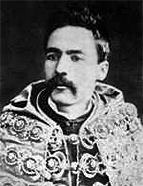

The influence of German philosophy is noted by Pinharanda Gomes, the Portuguese philosopher who showed the most interest in his work. According to him, contact with Krause was established through the French-speaking world via Ahrens and Tiberghien, as well as through Vicente Ferrer Neto Paiva (Dicionário dos mais ilustres ... [Dictionary of the most illustrious...], 2001, pp. 291-292), an advocate of Krausist-influenced jusnaturalism with significant organicist elements, in contrast to Rodrigues de Brito, who supported a subjective right aligned with Kant, in accordance with a moral imperative and thus more formal in nature. Despite the influences of Kant in his first work, Lopes Praça would gravitate towards Krausist spiritualism, which aligned more closely with his Catholic beliefs, where Vicente Ferrer would have made his contribution. What will be appreciated in his philosophical thought, which aligns well with the atmosphere surrounding "Portuguese philosophy" in the 20th century and has drawn the interest of figures like Pinharanda Gomes, is Lopes Praça's exploration of Portuguese philosophy — from the origins of medieval philosophy and the Conimbricenses through to the era of the liberal revolutions.
After completing his studies in 1869 with a thesis on Portuguese patronage, he attempted to pursue a teaching career at the University of Coimbra following a competition in 1870, but this aspiration was repeatedly postponed. From one competition to the next, he sought a position within the academy, consulting individuals such as Teófilo Braga regarding vacancies in Portuguese universities, until he was appointed as a substitute lecturer at Coimbra in 1881. He started teaching Portuguese Civil Law in 1882, becoming a full lecturer for the same course from 1888 until 1903, and later also becoming a lecturer in General Principles of Civil Law (1904-1905) and Civil Law (1904-1906) (Memoria Professorum Universitatis Conimbrigensis, 1992, p. 167)
Those years marked the beginning of Portugal's prolonged economic crisis, which would impact the late 1880s and culminate in the bankruptcy of 1891-1893. Opposition gave way to pessimism, and the more radical changes sought by the generation of the 70s diminished into a reformism aligned with the State and the existing system. The Vencidos da Vida [Life's Vanquished] who emerged in the late 80s and early 90s reflected this climate, seeking reform through legal means and institutions (Oliveira Martins had attempted, albeit unsuccessfully, to revitalise Vida Nova [New Life]). The wear and tear on the political system and the monarchy is evident; the most radical opposition and persistence in criticising the regime will come from the gradually emerging republicans, while the main figures of the 70s generation are integrating into the political system, abandoning the revolutionary, Proudhonian, and socialist-inspired direction of their evolutionary programme for transforming public consciousness, as well as the path of opposition. It is within this context that Lopes Praça is esteemed for his reputation for moderation. The conservatism reflected in his writings also advocates for openness to new ideas that are able to support the monarchical regime. It should be noted, however, that some of his social and political ideas can be said to be ahead of their time. These ideas can be more effectively understood by revisiting the journey of the young Lopes Praça, a recent law graduate and high school teacher.
This work is financed by national funds through FCT - Foundation for Science and Technology, I.P, in the scope of the projects UIDB/04311/2020 and UIDP/04311/2020.
